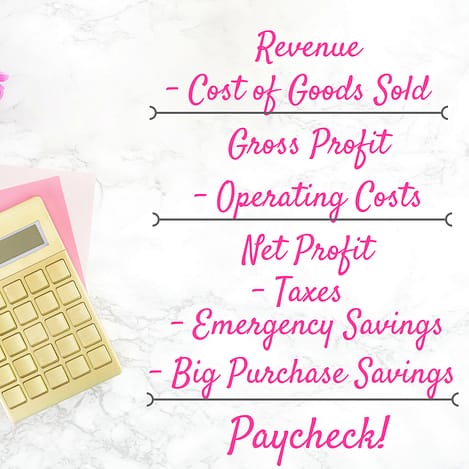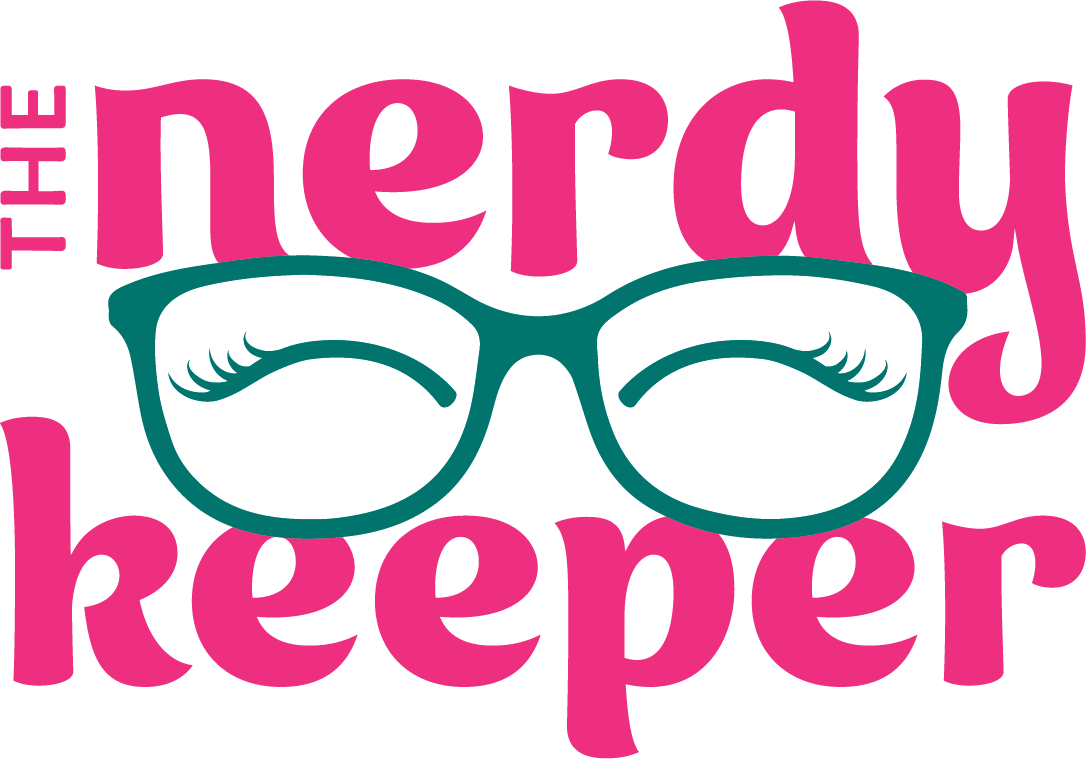As a business owner there are several things that you pay for to make your business run, and these are pretty obvious, your website, software, advertising, etc.
But the question is...are you paying yourself?
And if you’re paying yourself are you doing it correctly and in a way that supports both your business and your family?
Today we’re going to walk through the perfect paycheck formula, if you follow this formula you’ll calculate the perfect paycheck every time.
Gross Profit
First we’ll start with your revenue, which is all the money you bring into your business through the sale of your products or services. From revenue we subtract your cost of goods sold. Cost of goods sold are the expenses that are directly related to your sales, if you don’t sell something you don’t incur the costs.
If you sell a product cost of goods sold would include the different parts that make up your product. If you have a service based business this would be anything that varies with each additional customer. For example, every time I get a new bookkeeping client I pay for access to accounting software, if I don’t have that client I don’t have the cost.
Revenue minus cost of goods sold gives you gross profit.
Net Profit
The next step is to take gross profit and subtract your operating costs. Operating costs are expenses that your business incurs at a consistent rate whether you make one sale or twenty, This would include expenses related to your website, rent, insurance, monthly subscription software, etc.
Gross profit minus operating costs equals your net profit.
Your Paycheck
Many people would stop at this point and pay themselves their net profit, but if you do that you’re leaving yourself in a tight spot. There are three additional items that should be factored in before you pay yourself.
Taxes: It’s incredibly important that you factor taxes into your paycheck. As a sole proprietor or single-member LLC you are responsible for both the employer and employee portions of Social Security and Medicare, as well as federal and state income taxes.
While it can be hard to figure out exactly how much you will need I would recommend setting aside at least 25% of your net profit in a separate account to help cover your tax expense. Of course, if your tax preparer or accountant has given you a different percentage use that, the important thing is that you set this aside!
Loans: If you've got a loan or a credit card balance to pay off make sure you set aside enough cash to make these payments. Loan/card payments don't show up on your P&L, so you have to make sure to factor these amounts in.
Emergency Fund: One of the big things that puts small businesses out of business is not having the cash to pay their bills or cover an emergency. The amount of your emergency fund will differ based on your type of business, and the expenses of your business. Determine how much of a fund your business needs and start saving towards that every time you go to pay yourself.
Big Purchases: The last thing to subtract from your net profit is to save for big purchases. You know that eventually you’ll need a new computer, or piece of large equipment, or need to hire a coach, start saving for it now so that it doesn’t end up being an emergency purchase.

We’ve reached your final paycheck amount! You can confidently pay yourself whatever is remaining, knowing that your business has everything it needs to keep growing.
Not sure where to get all these numbers? Having a bookkeeper can help you with these calcs and so much more. See how I can help you today!
